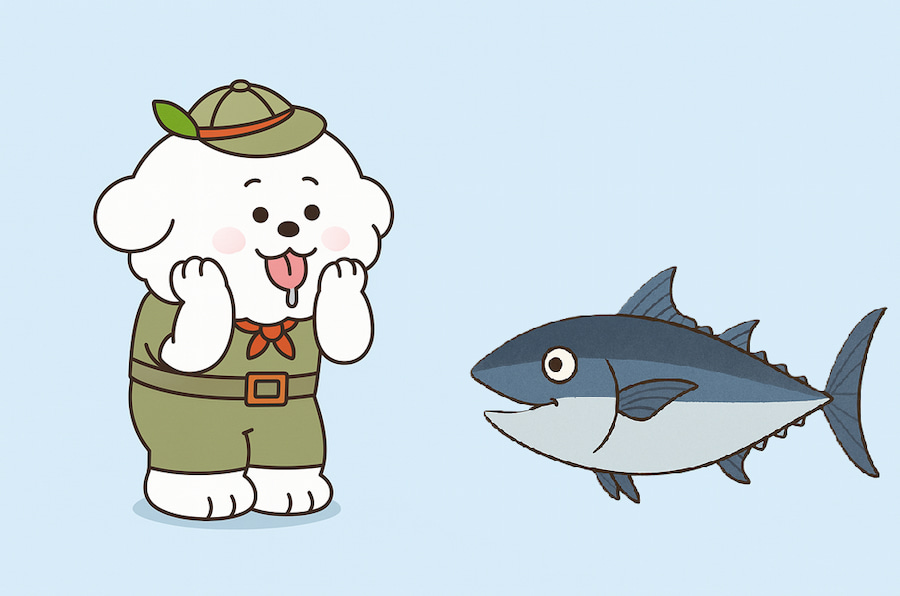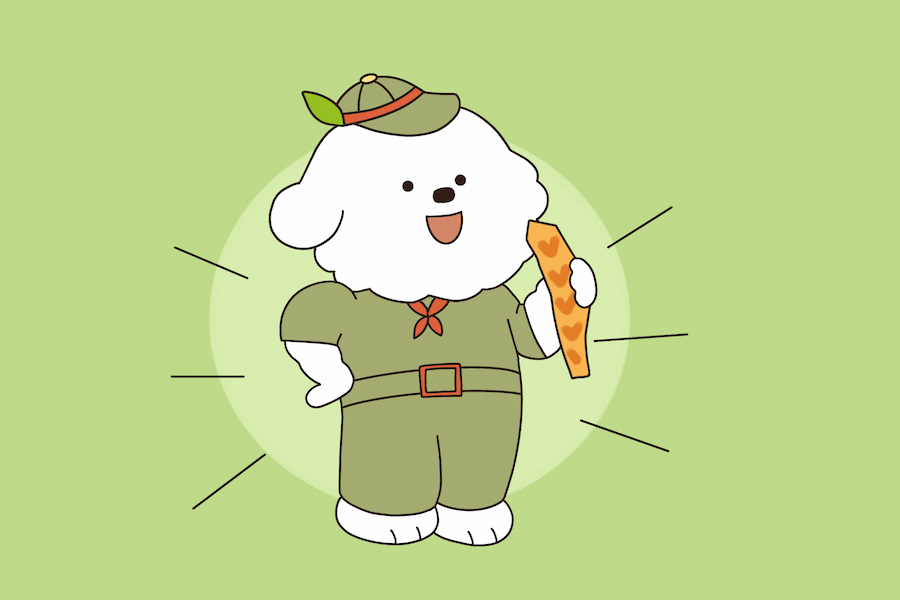One of the most common questions is “Can dogs eat vegetables?” That is a pretty intriguing question because vegetables in a dog’s diet add many health benefits. However, it is also important to be aware of what vegetables are good for your furry friends and those that should never ever come near them.
If you are curious about what vegetables can dogs eat, then you may also wonder, can dogs have canned vegetables? Canned veggies may seem like the easiest way to serve them, but they often contain preservatives that are not good for your pup.
In this article are the best options, and I will share with you their correct portion to keep your little furry friend in top health and joy!

LeeAndPol offers the best nutritious treats for your dog, combining vegetables with dried pollock rich in calcium, protein, and omega-3 to support your dog’s health!
What Vegetables Can Dogs Eat?
From a true health perspective, it is a wonderful idea for dog owners to add some veggies into the diet of your pet. Now you should be aware that dogs cannot eat Vegetables. Here, we will discuss some of the veggies that are really good for dogs and mainly fall under six super beneficial types which when scientifically selected by veterinarians from all around world include: beets, carrots, kabocha squash, tomatoes. bell peppers, and broccoli.
Well, it turns out that these veggies are not just safe—they’re also full of nutrients which do your dog a whole lot of good. Read on to learn why each of these veggies are a great commodity for your dog.
Beets
Your dog can get plenty of fiber, vitamins and antioxidants from beets. They aid heart health, liver health, indigestion and skin quality. Beets will also help to make your dog’s coat shiny and healthy.

Eat them raw (not recommended) or very lightly boiled/steamed to be a much simpler digestion for senior dogs and puppies.
Carrots
Carrots are the best vegetable option for all of you out there who ask “what veggies can my dog eat”. It contains beta-carotene, which your body converts to an important nutrient for your eye health, in the form of vitamin A. Also, snacking on raw carrots can help to clean your teeth as they act like natural toothbrushes. You can serve as it is or steam/boil them depending on what your dog prefers.
Kabocha Squash
Also great for your furry friend, is Kabocha Squash. This tasty vegetable is a great source of fiber that assists dogs in the digestion process and saves them from constipation problems. It also includes extra doses of Vitamin A and C, two known immune system boosters. Kabocha squash is great for immune support of your dog.

You should also make sure to cook it properly, as your dog may be unable to eat raw ones.
Tomatoes
Tomatoes contain a powerful antioxidant called lycopene, which provides significant benefits in preventing various inflammatory diseases, as well as heart disease and cancer. Additionally, the high fiber content aids your dog’s digestion, and the abundance of vitamins and minerals helps your dog’s immune system and overall health.

Bell Peppers
Bell peppers are on the list of vegetables that dogs can eat. Capsicum is also very low in calories and contains vitamins A, C AND E. But bell peppers have 10 times as many as green capsicums!
Vitamin B6 is essential for hemoglobin production, promoting red blood cell formation and support dogs immune strength and nervous system, including brain health. They also contain Vitamin E, which is beneficial for muscle development and prevent joint problem such as patellar luxation.
Broccoli
Yes, dogs can eat broccoli but only in trace amounts. It is a fabulous vegetable for dogs as it is filled with both fiber and vitamins. It is also extremely helpful for bone health, and digestion.

But remember, overfeeding broccoli can lead to stomach irritation in your dog, as it contains a naturally occurring compound isothiocyanates.
Spinach with Sweet Potatoes
Rounding out the list are spinach and sweet potatoes—both veggies that will do good for your dog. Spinach is a natural iron powerhouse, and sweet potatoes are packed with dietary fiber in addition to vitamins B6 and C — both veggies should be cooked so they’re easier for the dog’s stomach.

LeeAndPol only use fresh vegetables and carefully preparing each one by removing any harmful parts for dogs. So, you can feed them with confidence!

How Much Vegetables Can Dogs Eat?
Most vegetables are safe to dogs but remember that moderation is key. If you have too many greens this increases the risk of digestive problems like bloating, gas or diarrhea. So, how much is enough? Ideally, make up no more than 10% of your dogs’ overall diet with vegetables. A smaller dog only needs to eat 2-3 tablespoons of cooked vegetables at a time whereas giant breeds can consume as much as half-cup or one full cup in one meal.
Vegetable Dog Treats
Making vegetable dog treats is an excellent way to provide your dog with a healthy treat. Below are some simple and healthy recipes you can make using the vegetables we’ve already discussed.
Carrot Bites & Kabocha Squash
The ingredients you’ll need for this recipe include a cup of cooked kabocha squash, shredded carrots (½) and an egg with about a cup worth of oat flour.
- Start the process by heating your oven to 350F.
- Then, mix the shredded carrots and mashed cooked kabocha squash together in the oat flour and egg mixture to form a dough.
- Then make small-sized balls of the dough in the pan on top of parchment paper.
- And lastly, bake them for about 20-25 minutes or until the bites are golden on top.
These treats provide soft and nutritious complex carbohydrates but are also great for treating or a light treat.
Beet and Sweet Potato Chips
If your dog prefers crunchy treats, Beet and Sweet Potato Chips may be right up his alley.
- For this, you will have to slice a beet and sweet potato into thin rounds.
- Then coat the slices lightly with olive oil.
- Next, place the bread slices on a baking sheet and put them into the oven at 350° and bake slices until crispy, approximately for 2-1/2 hours.
These chips are high in fiber and antioxidants which makes them a great detox food.
Broccoli Bell Pepper Biscuits
- Start the cooking process by boiling half cup of broccoli and chopping another half cup of the other vegetable.
- Then combine both items with 1 cup of wheat flour and an egg to form a dough.
- Ready your oven by heating it to approximately 350°F. Once the dough is ready, cut it into your favorite shapes and place the resulting biscuits on a baking sheet and just bake them for 20-25 minutes, or until they’re golden and crisp.
These treats are packed with vitamins and fiber, helping to support your dog’s immune system and keep their coat healthy and shiny.

LeeAndPol’s freeze dried dog treats preserves the nutrients in vegetables and gives a satisfying crunch texture that your dog will love!
Why Choose Vegetable Based Dog Treats?
Vegetable-based dog treats give a nutrient-rich, low-calorie treat choice that promotes your dog’s health without the addition of harmful chemicals or extra food preservatives frequently found in packaged treats. These homemade dog treats can be simply added to your dog’s regular meals and can also be presented as a reward. Vegetables like carrots, beets, and broccoli are filled with essential vitamins, and minerals that improve the dog’s digestion and general well-being. Also, their low calorie content makes them beneficial for obese dogs that need to lose weight
What Vegetables Can Dogs Not Eat?
Being the Vegetable lover that I am, one of my very favourite things to do when I have time is go down a pandoras box blogs looking at food and recipes.
Though many vegetables can be safe for dogs, there are some which might not. That is why, it is extremely important to know which ones should be avoided in order prevent your best friend from eating anything harmful.
Onions and Garlic
Irrespective of whether onions and garlic are in raw, cooked or powdered form, thiosulfates are always present in them. These compounds can cause oxidative damage to your dog, leading to a serious medical condition called hemolytic anemia. Even the smallest use of these vegetables can, over time, contribute to some serious health problems. Dogs with an onion or garlic toxicity will likely be lethargic, weak, have a decreased appetite and in severe cases may actually collapse. These are the ones that you need to make sure never come into contact with your furry friend’s diet.

This also includes foods that could embrace onion or garlic powder as a seasoning, for instance some child meals, sauces or gravies.
Potatoes (Raw)
Because raw potatoes have naturally occurring solanine (a toxin you should especially avoid in those with green skins or sprouted areas). Solanine ingestion may cause nausea, diarrhea, and even more serious neurological problems—including tremors or seizures. Cooked potatoes contain less solanine so a bit cooked is safe in small amounts but they are high starchy food and should be avoided to prevent unnecessary weight gain or digestive problems. Never give your dog raw or green potatoes to munch on!
Rhubarb
This plant contains oxalates, which can be toxic to dogs if consumed in large amounts. These substances can lead to dog kidney failure, tremors and other symptoms of nervous system dysfunction. Because there is no single part of a rhubarb plant that has less risk than another, it makes sense to keep the entire thing out of your dog’s diet rather than worry about them accidentally chowing down some more toxic leaves.
Conclusion
Feeding your dog vegetables can be an excellent way to help improve their diet as they’re a natural source of lots of important things including vitamins, minerals and fiber. Yeah, there are some mega-health benefits in feeding veggies like carrots, bell peppers and kabocha squash but it is just as important that you know which ones can be dangerous (onions), toxic (garlic) or less-in-good-for-them (raw potatoes).
If ever in doubt, it is always worth checking with your vet to ensure that the vegetable you are feeding complies with dietary advice. With some handy info about the vegetables, and a little caution, you can add more healthy variety to your dog’s diet for daily nutrition that can impact its future well-being.
FAQ
Yes, certain vegetables, such as sweet potatoes and carrots, are gentle on a dog’s stomach and can help indigestion. However, always consult your vet before introducing new foods, especially if your dog has a known sensitive stomach.
Yes, dogs can eat cabbage. A low calorie, nutrient packed vegetable that packs a punch with fiber and Vitamin C & K — just don’t overdo it or your dog might get gassy!



